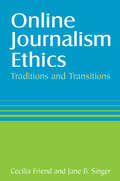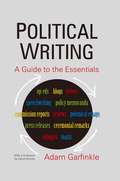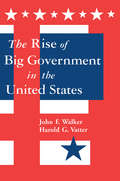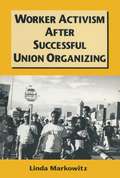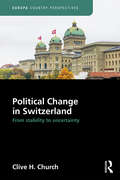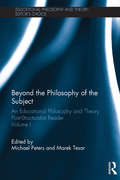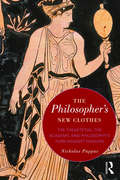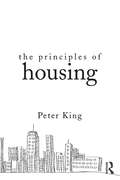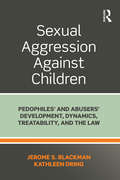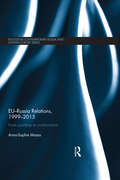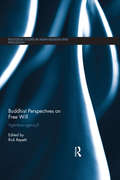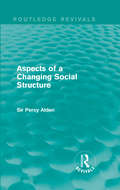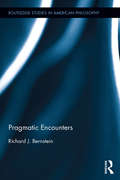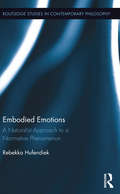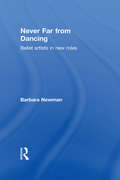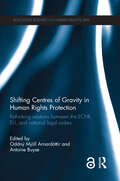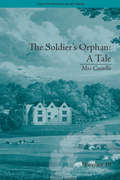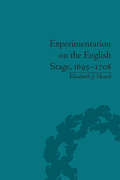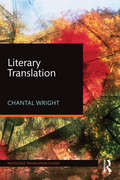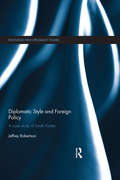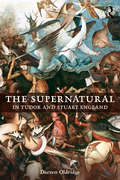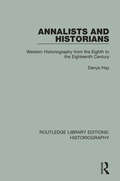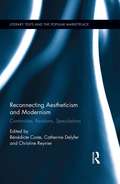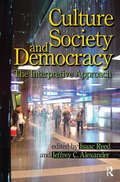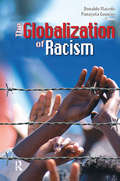Special Collections
Benetech’s Global Certified Accessible Titles
Description: Benetech’s GCA program is the first independent third-party EPUB certification to verify ebook accessibility. By creating content that is born accessible, publishers can meet the needs of all readers. Learn more: https://bornaccessible.benetech.org/
- Table View
- List View
Online Journalism Ethics
by Cecilia Friend and Jane SingerOnline media present both old and new ethical issues for journalists who must make decisions in an interactive, instantaneous environment short on normative standards or guidelines. This user-friendly book guides prospective and professional journalists through ethical questions encountered only online. Including real-life examples and perspectives from online journalists in every chapter, the book examines the issues of gathering information, reporting, interviewing, and writing for mainstream news organizations on the Web. It considers the ethical implications of linking, interactivity, verification, transparency, and Web advertising, as well as the effects of convergence on newsrooms. It also addresses the question of who is a journalist and what is journalism in an age when anyone can be a publisher. Each chapter includes a complex case study that promotes critical thinking and classroom discussion about how to apply the ethical issues covered.
Political Writing
by David Brooks and Adam GarfinkleWriting well, and persuasively, is not only a discipline that can be learned, it is one deeply rooted in the classical arts of rhetoric and polemic. This book introduces the essential skills, rules, and steps for producing effective political prose appropriate to many contexts, from the editorial, the op-ed, and the polemical essay to others both weighty and seemingly slight.
The Rise of Big Government
by Harold G. Vatter and John F. WalkerThe Rise of Big Government chronicles the phenomenal growth of local, state, and federal government over the last 100 years. The authors explain this growth by arguing that public and social acceptance of government intervention has allowed government to maintain a presence at all levels of the economy. The authors take issue with the opposing argument that government has grown by itself and by the bureaucracy's constant push for its own expansion.
Worker Activism After Successful Union Organizing
by Linda MarkowitzShows how different levels of worker participation during a union organizing campaign influence the perceptions and actions of those same workers after the campaign ends, and, thereby, the long-term effectiveness and success of the organizing effort. Drawing on historical and current examples, the author analyzes the political and economic contexts within which today's unions are organizing, including a detailed examination of the impact of the Wagner Act.
Political Change in Switzerland
by Clive H. ChurchPolitical Change in Switzerland explains the striking recent political developments in Switzerland, an important but surprisingly little known and often misunderstood country, aiming to dissipate prevailing myths about Switzerland in its European context. Firstly, the title provides an analysis of the way the practice and processes of Swiss politics have so dramatically changed over the last 25 years, setting out the differences between outside perceptions and changing Swiss realities. Secondly, it discusses how far the country has moved, from the stability of the post-war period to a new era of uncertainty, in which the so called Sonderfall, or special case, no longer seems to apply. In doing so it analyses the populist movement, centred on the Swiss People’s Party, examining its support and tactical operations, as well as the response of the establishment to the challenges the movement poses, both generally and where key questions of policy on foreigners and the EU are concerned. Finally, the title explains how much of this change is related to Europe, and discusses the prospects for Switzerland, Europe and the EU member states in the light of this new Swiss uncertainty. The way in which globalization has imposed new stresses on Switzerland, both in external policy and social terms, is the key theme of the title. These stresses have, in turn, encouraged the growth of a new populist movement, drawing on social classes previously supportive of other forces, and employing aggressive new tactics, creating a challenge that the establishment has found it hard to counter, so that stability has been compromised. As a result, Switzerland now faces two linked policy challenges, to find ways of accommodating unease about immigration and to devise a realistic and widely acceptable new relationship with the EU. The book’s underlying belief is that these changes have left the country divided and uncertain about its future. This title offers in-depth analysis of Switzerland's domestic and European politics and policies. It is also innovative in trying both to bring out the European roots of recent political changes in Switzerland and of the challenges these pose to the Swiss status quo and for the evolution of the EU and member states such as the United Kingdom. This is a book for those interested in Switzerland, academics, business people, diplomats, journalists and political commentators.
Beyond the Philosophy of the Subject
by Michael A Peters and Marek TesarThis first volume focuses on a collection of texts from the latter twenty years of Educational Philosophy and Theory, selected for their critical status as turning points or important awakenings in post-structural theory. In the last twenty years, the applications of the postmodern and poststructuralist perspectives have become less mono-focused, less narrowly concerned with technical questions and also less interested in epistemology, and more interested in ethics. This book covers questions of genealogy, ontology, the body and the institution, giving examples of theoretical applications of post-structural theory that testify to the generative and endlessly applicable potential of this work to different fields and avenues of thought. While informed by Foucault's thinking of the political subjugation of docile bodies to individuals as self-determining beings, the chapters in this book culminate in amalgamations of different schools of educational philosophy, which explore poststructuralist approaches to education. Beyond the Philosophy of the Subject will be key reading for academics, researchers and postgraduate students in the fields of philosophy of education, philosophy, education, educational theory, post-structural theory, the policy and politics of education, and the pedagogy of education.
The Philosopher's New Clothes
by Nickolas PappasThis book takes a new approach to the question, "Is the philosopher to be seen as universal human being or as eccentric?". Through a reading of the Theaetetus, Pappas first considers how we identify philosophers – how do they appear, in particular how do they dress? The book moves to modern philosophical treatments of fashion, and of "anti-fashion". He argues that aspects of the fashion/anti-fashion debate apply to antiquity, indeed that nudity at the gymnasia was an anti-fashion. Thus anti-fashion provides a way of viewing ancient philosophy’s orientation toward a social world in which, for all its true existence elsewhere, philosophy also has to live.
The Principles of Housing
by Peter KingThe Principles of Housing is an engaging and discursive introduction to the key topics within housing studies. Whereas many books get bogged down in country-specific policy or small innovations, this book argues that the fundamental concepts of what we call housing are relatively stable and unchangeable. By focusing on universal principles, the book provides an introduction to housing that can be used by students world-wide. The book consists of a series of short chapters relating to the key issues of housing, such as borrowing, choice, finance, government, need, reform and welfare. Each chapter is designed to be a starting point for a wider conversation, with discussion questions and a number of think pieces and international case studies to help students connect these general principles to their own surroundings. Written by renowned housing expert Peter King, The Principles of Housing succeeds in being accessible and engaging without shying away from the complexities of housing issues. The book will be invaluable to students on housing-related courses across finance, real estate, planning, development, politics and sociology subjects. The book would also be useful to housing professionals and policy makers aiming to expand their understanding of housing issues.
Sexual Aggression Against Children
by Jerome Blackman and Kathleen DringIn Sexual Aggression Against Children: Pedophiles’ and Abusers' Development, Dynamics, Treatability, and the Law, Drs. Blackman and Dring use multiple psychoanalytic principles to answer, “Why do people sexually abuse children?” and “Why are most abusers male”? They address the legal and mental health professions’ minimization of the horrific nature of child sexual abuse, explain how to assess pedophiles’ treatability, and discuss cases of adolescent and adult predators. Also, developmental analysis of sexual predation is integrated with a review of judicial decisions regarding civil commitment and punishment of abusers. The authors suggest how courts, evaluators, and legislatures can preserve constitutional rights of sexual offenders while prioritizing protection of children.
EU-Russia Relations, 1999-2015
by Anna-Sophie MaassThis book traces the development of EU-Russia relations in recent years. It argues that a major factor influencing the relationship is the changing internal dynamics of both parties, in Russia’s case an increasingly authoritarian state, in the case of the EU an increasing coherence in its foreign policy as applied to former Soviet countries which Russia regarded as interference in its own sphere. The book considers the impact of conflicts in Kosovo, Chechnya, Georgia and Ukraine, discusses the changing internal situation in both Russia and the EU, including the difficulties in overcoming fragmentation in EU policy-making, and concludes by assessing how the situation is likely to develop.
Buddhist Perspectives on Free Will
by Rick RepettiThroughout the history of Buddhism, little has been said prior to the Twentieth Century that explicitly raises the question whether we have free will, though the Buddha rejected fatalism and some Buddhists have addressed whether karma is fatalistic. Recently, however, Buddhist and Western philosophers have begun to explicitly discuss Buddhism and free will. This book incorporates Buddhist philosophy more explicitly into the Western analytic philosophical discussion of free will, both in order to render more perspicuous Buddhist ideas that might shed light on the Western philosophical debate, and in order to render more perspicuous the many possible positions on the free will debate that are available to Buddhist philosophy. The book covers: Buddhist and Western perspectives on the problem of free will The puzzle of whether free will is possible if, as Buddhists believe, there is no agent/self Theravāda views Mahāyāna views Evidential considerations from science, meditation, and skepticism The first book to bring together classical and contemporary perspectives on free will in Buddhist thought, it is of interest to academics working on Buddhist and Western ethics, comparative philosophy, metaphysics, philosophy of mind, philosophy of action, agency, and personal identity.
Aspects of a Changing Social Structure
by Sir Percy AldenOriginally published in 1937, Aspects of a Changing Social Structure presents lectures delivered in 1936 on behalf of the Sir Halley Stewart Trust. These lectures focus on discussing the interest that government was beginning to take in Britain’s social welfare and industrial patterns. Topics covered include nutrition, child welfare, housing and health in relation to individuals and the state as well as new developments in industrial organisation and the future of the agricultural and coal industry. This title will be of interest to students of Sociology and History.
Pragmatic Encounters
by Richard J. BernsteinRichard J. Bernstein is a leading exponent of American pragmatism and one of the foremost philosophers of the twentieth century. In this collection he takes a pragmatic approach to specific problems and issues to demonstrate the ongoing importance of this philosophical tradition. Topics under discussion include multiculturalism, political public life, evil and religion. Individual philosophers studied are Kant, Arendt, Rorty, Habermas, Dewey and Trotsky. Each of the sixteen essays, many of which are published here for the first time, offers a way of bridging contemporary philosophical differences. This book will be of interest to scholars of philosophy and those researching social and political theory.
Embodied Emotions
by Rebekka HufendiekIn this book, Rebekka Hufendiek explores emotions as embodied, action-oriented representations, providing a non-cognitivist theory of emotions that accounts for their normative dimensions. Embodied Emotions focuses not only on the bodily reactions involved in emotions, but also on the environment within which emotions are embedded and on the social character of this environment, its ontological constitution, and the way it scaffolds both the development of particular emotion types and the unfolding of individual emotional episodes. In addition, it provides a critical review and appraisal of current empirical studies, mainly in psychophysiology and developmental psychology, which are relevant to discussions about whether emotions are embodied as well as socially embedded. The theory that Hufendiek puts forward denies the distinction between basic and higher cognitive emotions: all emotions are embodied, action-oriented representations. This approach can account for the complex normative structure of emotions, and shares the advantages of cognitivist accounts of emotions without sharing their problems. Embodied Emotions makes an original contribution to ongoing debates on the normative aspects of emotions and will be of interest to philosophers working on emotions, embodied cognition and situated cognition, as well as neuroscientists or psychologists who study emotions and are interested in placing their own work within a broader theoretical framework.
Never Far from Dancing
by Barbara NewmanA series of interviews with some of the foremost dancers in twentieth-century ballet, Never Far from Dancing reflects on the paths that their careers have taken since they retired from the stage. Barbara Newman has expertly edited each of her interviews to read as a monologue, addressing every aspect of ballet, from its styles and technical demands to its personalities, its celebrated roles and, most of all, to what happens when the dancing stops. While ballet invites all manner of writing from critics, admirers and academics, the thoughts and experiences of the dancers themselves are seldom recorded. Here, those who scaled the heights of their art hand down their wisdom and recount lives spent in this most enduring of art forms.
Shifting Centres of Gravity in Human Rights Protection
by Antoine Buyse and Oddný Mjöll ArnardóttirThe protection of human rights in Europe is currently at a crossroads. There are competing processes which push and pull the centre of gravity of this protection between the ECHR system in Strasbourg, the EU system in Luxemburg and Brussels, and the national protection of human rights. This book brings together researchers from the fields of international human rights law, EU law and constitutional law to reflect on the tug-of-war over the positioning of the centre of gravity of human rights protection in Europe. It addresses both the position of the Convention system vis-à-vis the Contracting States, and its positioning with respect to fundamental rights protection in the European Union. The first part of the book focuses on interactions in this triangle from an institutional and constitutional point of view and reflects on how the key actors are trying to define their relationship with one another in a never-ending process. Having thus set the scene, the second part takes a critical look at the tools that have been developed at European level for navigating these complex relationships, in order to identify whether they are capable of responding effectively to the complexities of emerging realities in the triangular relationship between the EHCR, EU law and national law.
The Soldier's Orphan
by Clare Broome SaundersThis is a novel virtually forgotten by modern readers, but one that deserves reassessment with this critical edition. Raised by guardians, Louisa’s fate is intertwined with the neighbouring Stanley family, including the jealous younger daughter, Armida – whose husband Lord Belmour openly admires Louisa and which propels the plot forward.
Experimentation on the English Stage, 1695-1708
by Elisabeth J HeardAt the beginning of the eighteenth century, British theatre saw a shift from what critics call 'Restoration' to 'sentimental' comedy. Focusing on the career of the Irish dramatist George Farquhar (1678-1707), this book argues that experimentation was the basis for this change.
Literary Translation
by Chantal WrightRoutledge Translation Guides cover the key translation text types and genres and equip translators and students of translation with the skills needed to translate them. Concise, accessible and written by leading authorities, they include examples from existing translations, activities, further reading suggestions and a glossary of key terms. Literary Translation introduces students to the components of the discipline and models the practice. Three concise chapters help to familiarize students with: what motivates the act of translation how to read and critique literary translations how to read for translation. A range of sustained case studies, both from existing sources and the author’s own research, are provided along with a selection of relevant tasks and activities and a detailed glossary. The book is also complemented by a feature entitled ‘How to get started in literary translation’ on the Routledge Translation Studies Portal (http://cw.routledge.com/textbooks/translationstudies/). Literary Translation is an essential guidebook for all students of literary translation within advanced undergraduate and postgraduate/graduate programmes in translation studies, comparative literature and modern languages.
Diplomatic Style and Foreign Policy
by Jeffrey RobertsonThe book explores diplomatic style and its use as a means to provide analytical insight into a state’s foreign policy, with a specific focus on South Korea. Diplomatic style attracts scant attention from scholars. It is dismissed as irrelevant in the context of diplomacy’s universalism; misconstrued as a component of foreign policy; alluded to perfunctorily amidst broader considerations of foreign policy; or wholly absented from discussions in which it should comprise an important component. In contrast to these views, practitioners maintain a faith-like confidence in diplomatic style. They assume it plays an important role in providing analytical insight, giving them advantage over scholars in the analysis of foreign policy. This book explores diplomatic style and its use as a means to provide analytical insight into foreign policy, using South Korea as a case study. It determines that style remains important to diplomatic practitioners, and provides analytical insight into a state’s foreign policy by highlighting phenomena of policy relevance, which narrows the range of information an analyst must cover. The book demonstrates how South Korea’s diplomatic style – which has a tendency towards emotionalism, and is affected by status, generational change, cosmopolitanism, and estrangement from international society – can be a guide to understanding South Korea’s contemporary foreign policy. This book will be of much interest to students of diplomacy studies, foreign policy, Asian politics, and International Relations in general.
The Supernatural in Tudor and Stuart England
by Darren OldridgeThe Supernatural in Tudor and Stuart England reflects upon the boundaries between the natural and the otherworldly in early modern England as they were understood by the people of the time. The book places supernatural beliefs and events in the context of the English Reformation to show how early modern people reacted to the world of unseen spirits and magical influences. It sets out the conceptual foundations of early modern encounters with the supernatural, and shows how occult beliefs penetrated almost every aspect of life. Darren Oldridge considers many of the spiritual forces that pervaded early modern England: an immanent God who sometimes expressed Himself through ‘signs and wonders’ and the various lesser inhabitants of the world of spirits including ghosts, goblins, demons and angels. He explores human attempts to comprehend, harness or accommodate these powers through magic and witchcraft, and the role of the supernatural in early modern science. This book presents a concise and accessible up-to-date synthesis of the scholarship of the supernatural in Tudor and Stuart England. It will be essential reading for students of early modern England, religion, witchcraft and the supernatural.
Annalists and Historians
by Denys HayThis book, originally published in 1977, is a survey of European historiography from its origins in the historians of Greece and Rome, through the annalists and chroniclers of the middle ages, to the historians of the late eighteenth century. The author concentrates on those writers whose works fit into a specific category of writing, or who have inlfuence the course of later historical writing, though he does deal with some of the more specialist forms of medieval historiography such as the crusading writers, and chivalrous historians like Froissart. He maintains that ‘modern’ history did not develop until the 18th Century.
Reconnecting Aestheticism and Modernism
by Christine Reynier and Bénédicte Coste and Catherine DelyferCharting the period that extends from the 1860s to the 1940s, this volume offers fresh perspectives on Aestheticism and Modernism. By acknowledging that both movements had a passion for the ‘new’, it goes beyond the alleged divide between Modernism and its predecessors. Rather than reading the modernist credo, ‘Make it New!’, as a desire to break away from the past, the authors of this book suggest reading it as a continuation and a reappropriation of the spirit of the ‘New’ that characterizes Aestheticism. Basing their arguments on recent reassessments of Aestheticism and Modernism and their articulation, contributors take up the challenge of interrogating the connections, continuities, and intersections between the two movements, thus revealing the working processes of cultural and aesthetic change so as to reassess the value of the new for each. Attending to well-known writers such as Waugh, Woolf, Richardson, Eliot, Pound, Ford, Symons, Wilde, and Hopkins, as well as to hitherto neglected figures such as Lucas Malet, L.S. Gibbon, Leonard Woolf, or George Egerton, they revise assumptions about Aestheticism and Modernism and their very definitions. This collection brings together international scholars specializing in Aestheticism or Modernism who push their analyses beyond their strict period of expertise and take both movements into account through exciting approaches that borrow from aesthetics, philosophy, or economics. The volume proposes a corrective to the traditional narratives of the history of Aestheticism and Modernism, revitalizing definitions of these movements and revealing new directions in aestheticist and modernist studies.
Culture, Society, and Democracy
by Jeffrey C. Alexander and Isaac ReedThis volume addresses the key question of the intersection of sociology and politics, and asks what a non-Marxist cultural perspective can offer the Left. Written by leading scholars, it develops new conceptions of social critique, new techniques of interpretive analysis, and new concepts for the sociology of democratic practice. It is a volume for the twenty-first-century, where global and local meet, when critical theory must examine its most fundamental presuppositions.
Globalization of Racism
by Donaldo Macedo and Panayota GounariAddressing ethnic cleansing, culture wars, human sufferings, terrorism, immigration, and intensified xenophobia, "The Globalization of Racism" explains why it is vital that we gain a nuanced understanding of how ideology underlies all social, cultural, and political discourse and racist actions. The book looks at recent developments in France, Germany, Greece, Ireland, Israel, Italy, Portugal, Spain and the United States and uses examples from the mass media, popular culture, and politics to address the challenges these and other countries face in their democratic institutions. The eminent authors of this important book show how we can educate for critical citizenry in the ever-increasing multicultural and multiracial world of the twenty-first century. Contributors are: David Theo Goldberg, Loic Wacquant, Edward W. Said, Zygmunt Bauman, Peter Mayo and Carmel Borg, Anna Aluffi Pentini and Walter Lorenz, Peter Gstettner, Georgios Tsiakalos, Franz Hamburger, Julio Vargas, Lena de Botton and Ramon Flecha, Concetta Sirna, Jan Fiola, Joao Paraskeva, Henry A. Giroux. It explores new forms of racism in the era of globalization.
